The Rise of Hyper-Seasonal Restaurants
What defines a ‘hyper-seasonal restaurant’ and how do they differ from a regular restaurant serving a seasonal menu — we look to Foraged. in Baltimore, Maryland and EDIT in Hackney, London for answers.
4 November 2024
Share this exclusive content from Saladplate
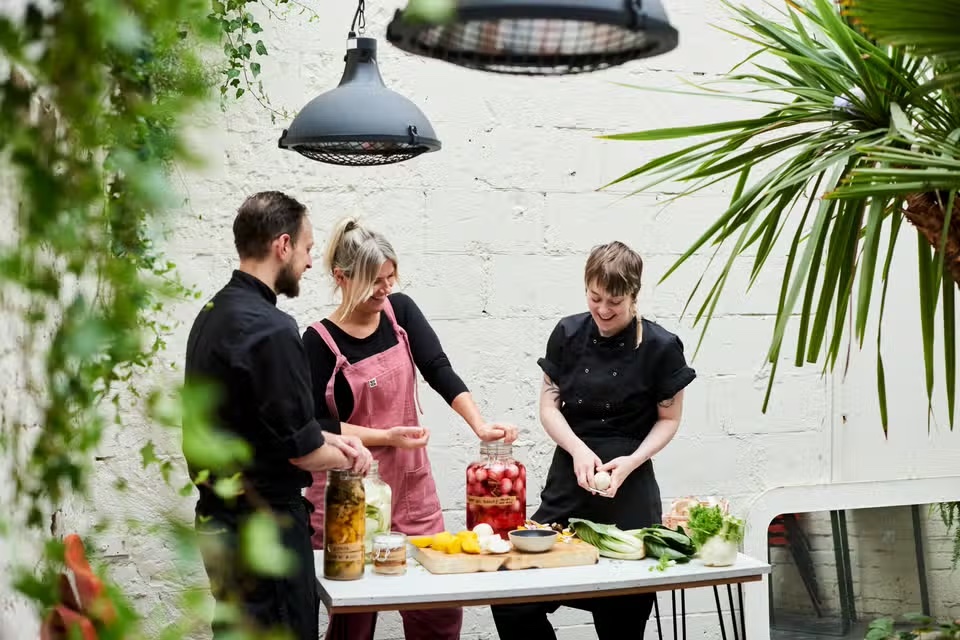
The team from EDIT build their own pantry by pickling and fermenting | Photo Credit: EDIT
Hyper-seasonal restaurants were regarded as something quite novel a few years ago but the concept is increasingly becoming more mainstream in the F&B industry, with more chefs embracing the hyper-seasonal approach. For the uninitiated, hyper-seasonal cooking is taking the farm-to-table concept a step further, focusing on local ingredients that are at their absolute peak of freshness and flavour. Hyper-seasonal restaurants are also much more in tune with the immediacy of nature’s rhythms, often adapting to micro-seasons, unusual weather patterns and local harvests that may only last a short time. While seasonal menus are based on broad, predictable seasons i.e. spring, summer, fall and winter, the menus at hyper-seasonal restaurants change frequently – sometimes even daily or weekly, depending on what is available at that very moment.
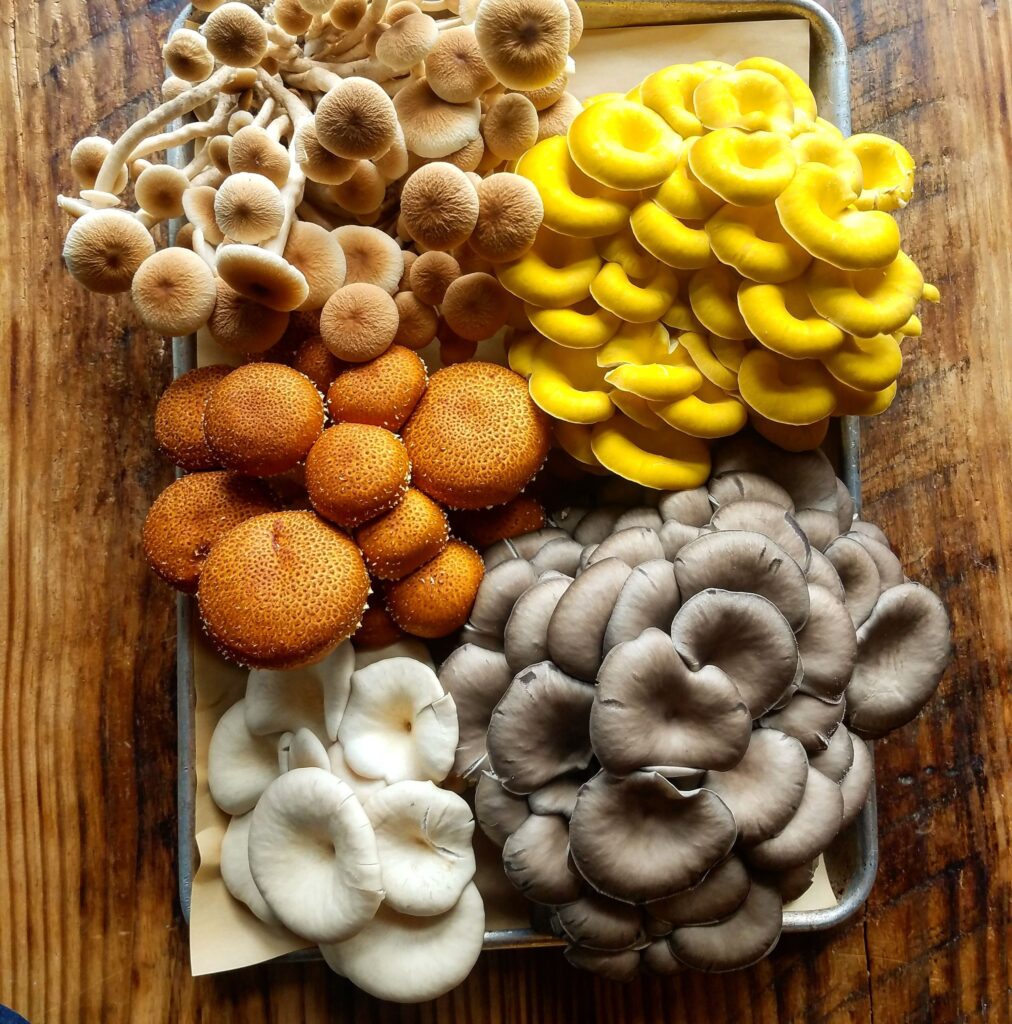
Photo credit: foraged
Take Foraged., a self-described hyper-seasonal eatery in Baltimore, Maryland for example, chef-owner Chris Amendola changes the menu almost weekly to reflect the freshest produce. He believes there are 52 seasons in a year, with each week offering new and exciting ingredients. While some chefs may baulk at the thought of having to create a menu that evolves so rapidly and deals with the unpredictability of ingredient supply, Chef Amendola firmly believes that the hyper-seasonal approach encourages creativity and innovation in the kitchen.
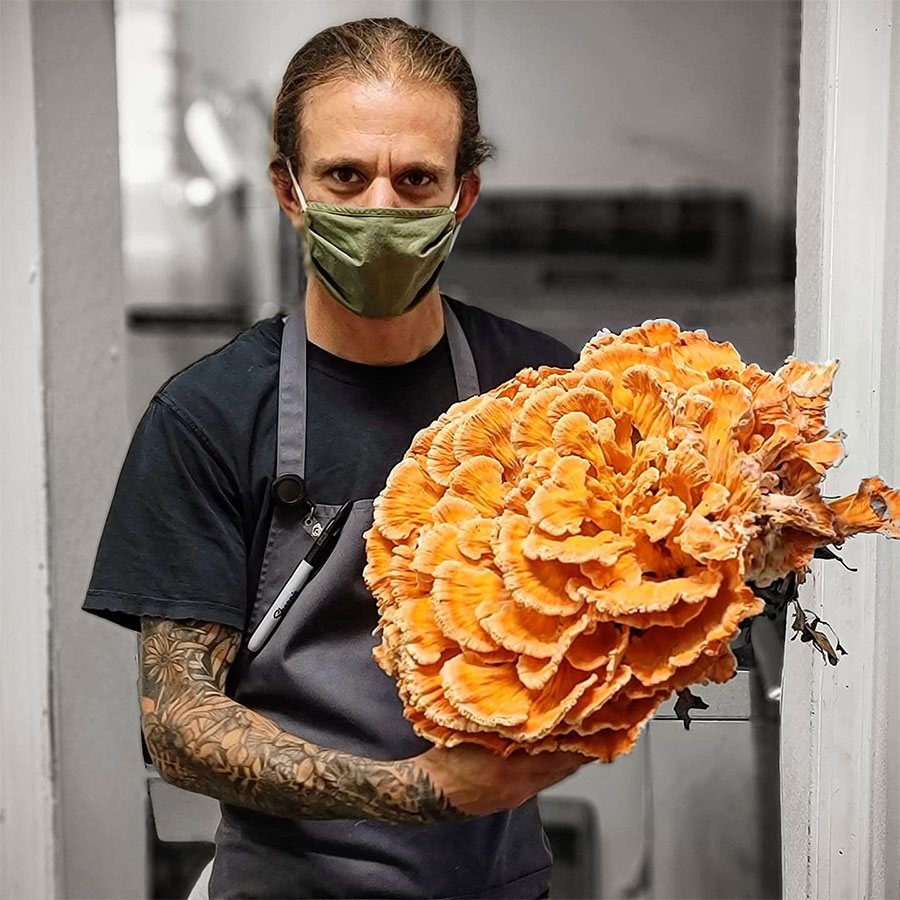
Chef Chris Amendola holding up a chicken of the woods mushroom that he foraged. Photo Credit: foraged.
“Every year we encounter new ingredients that we have never worked with before, and it’s always a fun challenge to figure out the best way to use them. My team spends a lot of time experimenting and testing different techniques to bring out the unique qualities of each ingredient. This process of innovation not only helps us stay creative but also allows us to expand our knowledge and discover exciting new flavours that we can share with our guests,” Chef Amendola says.
Fresh, Local and Fleeting
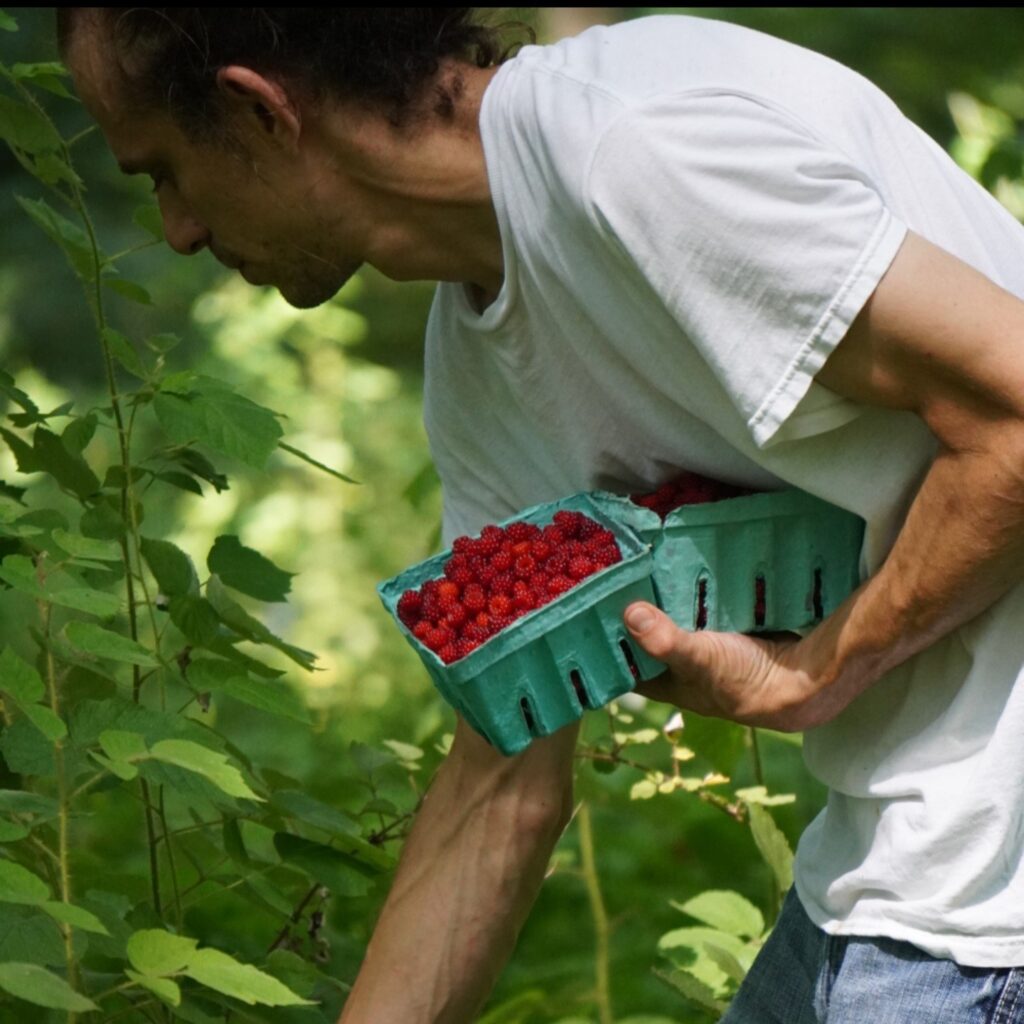
A majority of ingredients are sourced from local farms in Maryland, USA. Photo Credit: foraged.
Among the many perks of visiting a hyper-seasonal restaurant is being introduced to lesser-known ingredients and flavours that one might not encounter otherwise. During spring, Foraged. serves fiddlehead ferns – we are told they are available for a brief 4 to 7-day window and are gone until the following year. Come late winter, the team heads out into the woods to collect black walnut tree sap, which is cooked down to make syrup. This process is time-sensitive, with only about two weeks to collect enough sap before the season ends. These fleeting ingredients embody the essence of hyper-seasonal dining and allow the chefs to create dishes that capture a truly unique taste of the moment.
Beyond offering a unique culinary experience, chef Amendola sees hyper-seasonal cooking as the answer to supporting local communities and fostering a healthier planet.
“We source the majority of our ingredients from local farmers and foragers right here in Maryland. By partnering closely with these dedicated growers and gatherers, we’re able to bring the freshest, most seasonal ingredients to our menu. This collaboration allows us to celebrate the abundance of our region while supporting local agriculture and sustainability. Working with these specific farmers and foragers not only strengthens our connection to the land but also ensures that every dish we create is truly rooted in the flavours of Maryland,” Chef Amendola shares.
A Sustainable, Innovative and Exciting Approach to Modern Gastronomy

The menu at EDIT evolves daily to reflect the freshest produce available. Photo Credit: EDIT Restaurant
Over at EDIT, a hyper-seasonal vegan restaurant in Hackney, London, the menu evolves daily – not completely, but frequently enough to reflect owner Elly Ward’s low-waste philosophy and the team’s commitment to its ethos. Head chef Beth Oliver creates dishes depending on the availability of ingredients from local, independent producers.
Ward epitomises the hyper-seasonal way of life so much so that her restaurant has never even had tofu on the menu, unlike most other plant-based eateries. Instead, fermented pickles, almond feta, reindeer moss and flamingo peas are among the ingredients packing a punch on your plate here.
Oliver explains, “We work closely with farmers and suppliers, which means we have to be reactive. For example, if there’s a bad harvest, we won’t be able to get certain ingredients. And when they tell us something is peaking, we’ll order loads and preserve it. Every week, we’re waiting for amazing new ingredients. Each has a small window of availability, which makes it feel really special.”
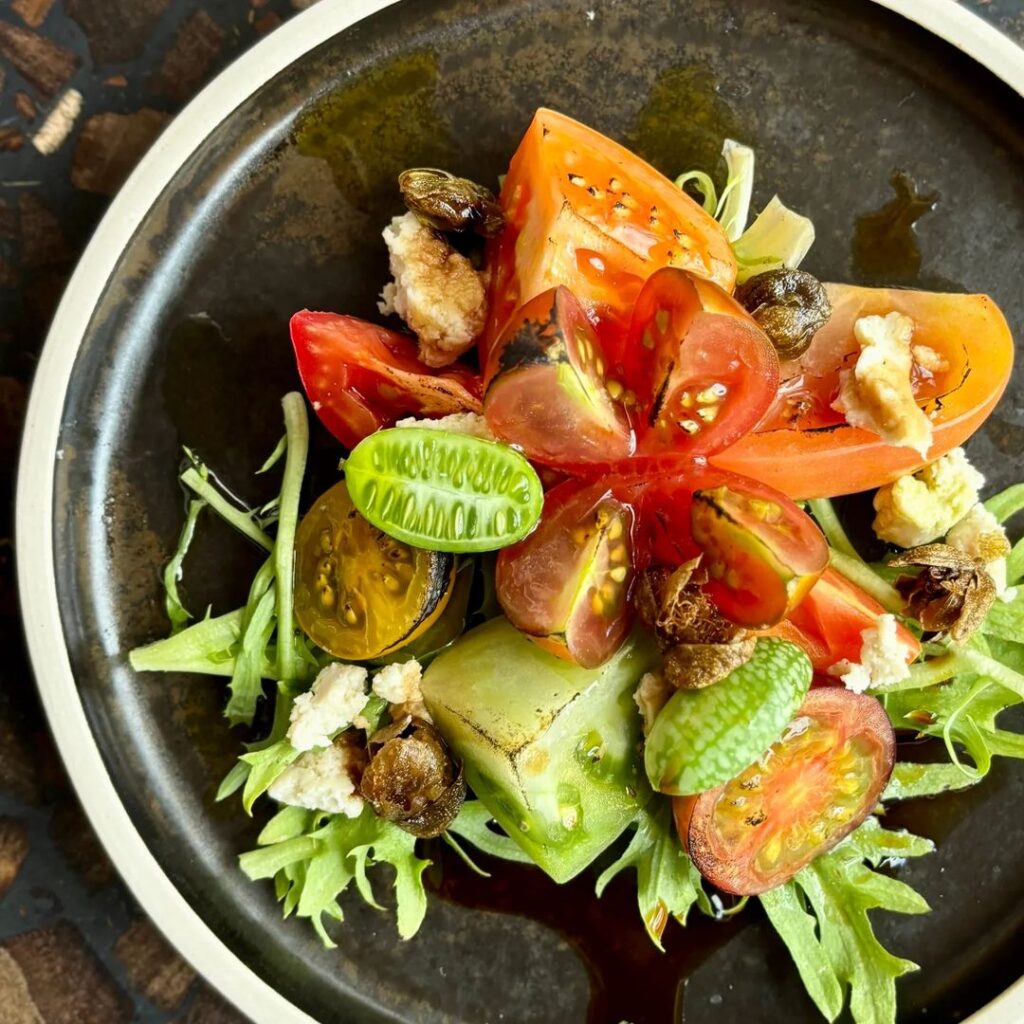
Photo Credit: EDIT Restaurant
“My advice to those interested in low waste would be to remember there’s always something you can do with leftover ingredients. We’ve been building our pantry by pickling and fermenting things like root-vegetable skins. The longer you work in this way, the more you get used to it too. It doesn’t feel restrictive. It’s a great opportunity to experiment – now, I’m always putting stuff in pickle brine. I’ve been on a personal journey with zero waste. It’s a really joyous thing,” Oliver adds.
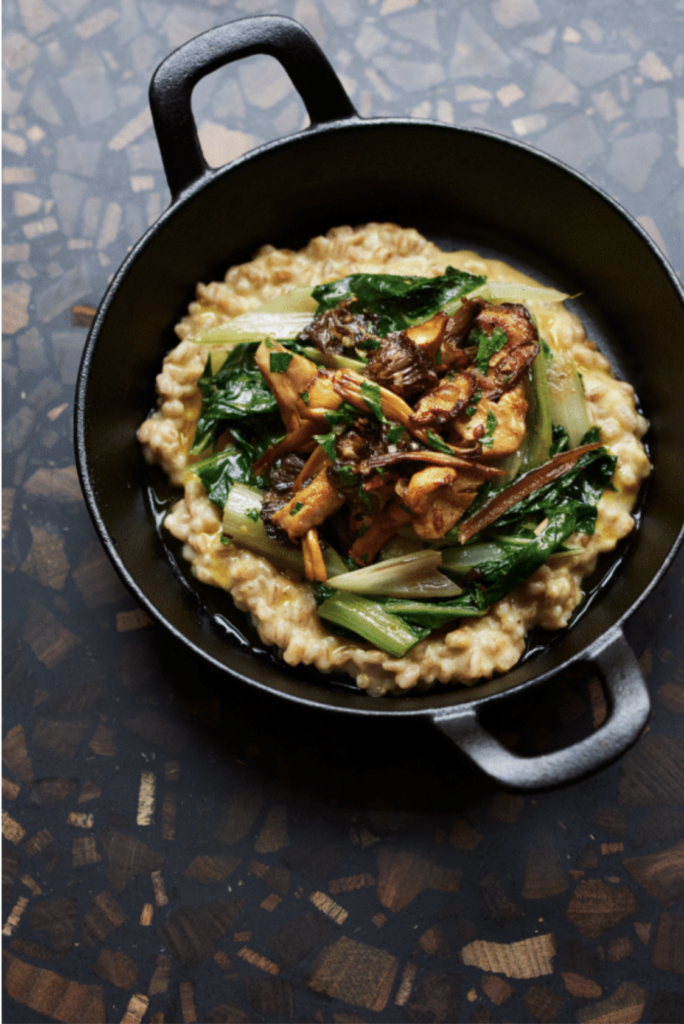

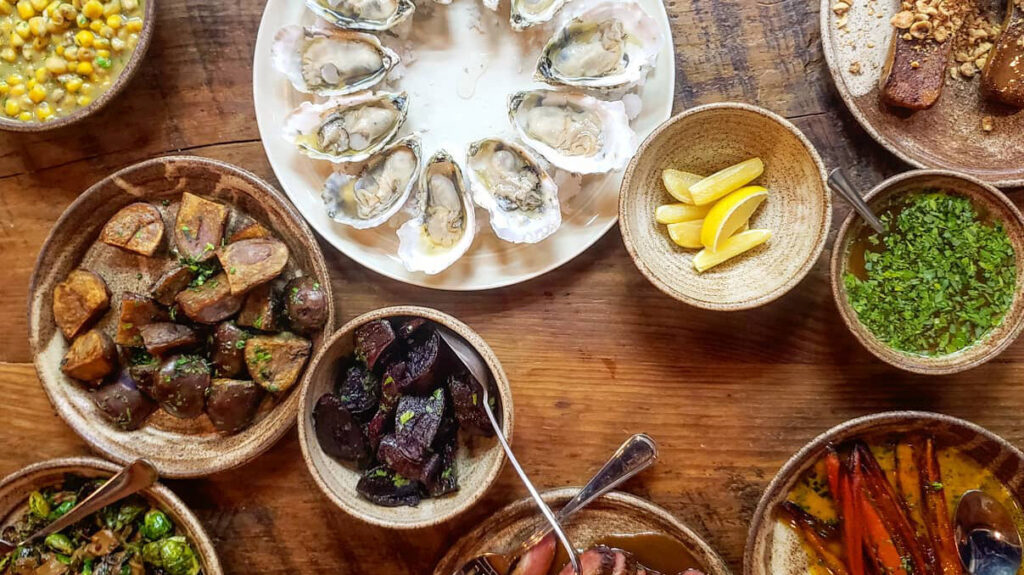
Photo credit: EDIT Restaurant
Author: Michelle Yee
A content and communications professional, Michelle spent more than a decade creating content for several leading media titles including Lonely Planet Asia, Yahoo Singapore, and Wine & Dine. After leaving the media industry in 2019, she has been honing her craft at a global communications agency where she helps develop and drive publicity campaigns for brands in the consumer and corporate sectors.



